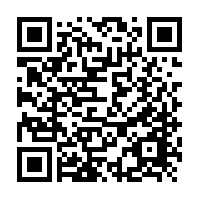The late Steve Jobs will remain a source of inspiration for many generations to come. His presentation skills are a prime example of his charisma and marketing genius.
However, Steve Jobs was also a master negotiator. Currently we have a great opportunity to see how the master himself navigated through the entire process to reach the destination he’d planned to reach.
Check out: 5 Negotiation Tips From Steve Jobs
Listen
Glossary
- savvy – shrewd and knowledgeable in the realities of life
- tier – a level or grade within the hierarchy of an organization or system
- cave in – yield or submit under pressure
- sustainable – able to be maintained at a certain rate or level
- coup de grace – a final blow or shot given to kill a wounded person or animal
- stark – severe or bare in appearance or outline
- enumerate – mention (a number of things) one by one
Think about it
Answer the questions below.
- Why doesn’t the author think that Jobs was a “hard-nosed” negotiator?
- What does the author mean by “others would eventually find out and push back?” Tip 1
- What kinds of value did Jobs show Murdoch?
- What is one of the biggest mistakes businesspeople make about negotiations?
Practice makes perfect
Fill in the blank spaces with the missing words.
One of the biggest mistakes ________ businesspeople make is to assume that the process is a rational and logical ________. But negotiation is almost always an emotional play. People make decisions because ________ ego, fear, greed, a need to please, and ________ on. Notice that Jobs shows the benefit and the risks ________ painting pictures and not enumerating lists. For instance, he mentions the 120 million customer credit card numbers ________ file. He deliberately left the image of all that potential money ________ Murdoch’s mind.
There are six mistakes in the passage below. Can you find and correct them?
Jobs showed two kinds of value in his email exchange. One was positive value–what HarperCollins would get by working with Apple–and another was negative, or what HarperCollins would loose by not working with Apple. For example, Jobs wrote that “Apple is an only other company currently capable to make a serious impact, and we have four of the six big publishers signed up already.” On one hand, he offers HarperCollins a tool to oppose industry domination by Amazon. On the second, he offers a soft hint that if HarperCollins doesn’t play ball, it may get left behind by it’s major competitors.
Explore it more
(1227)
Podcast: Play in new window | Download





